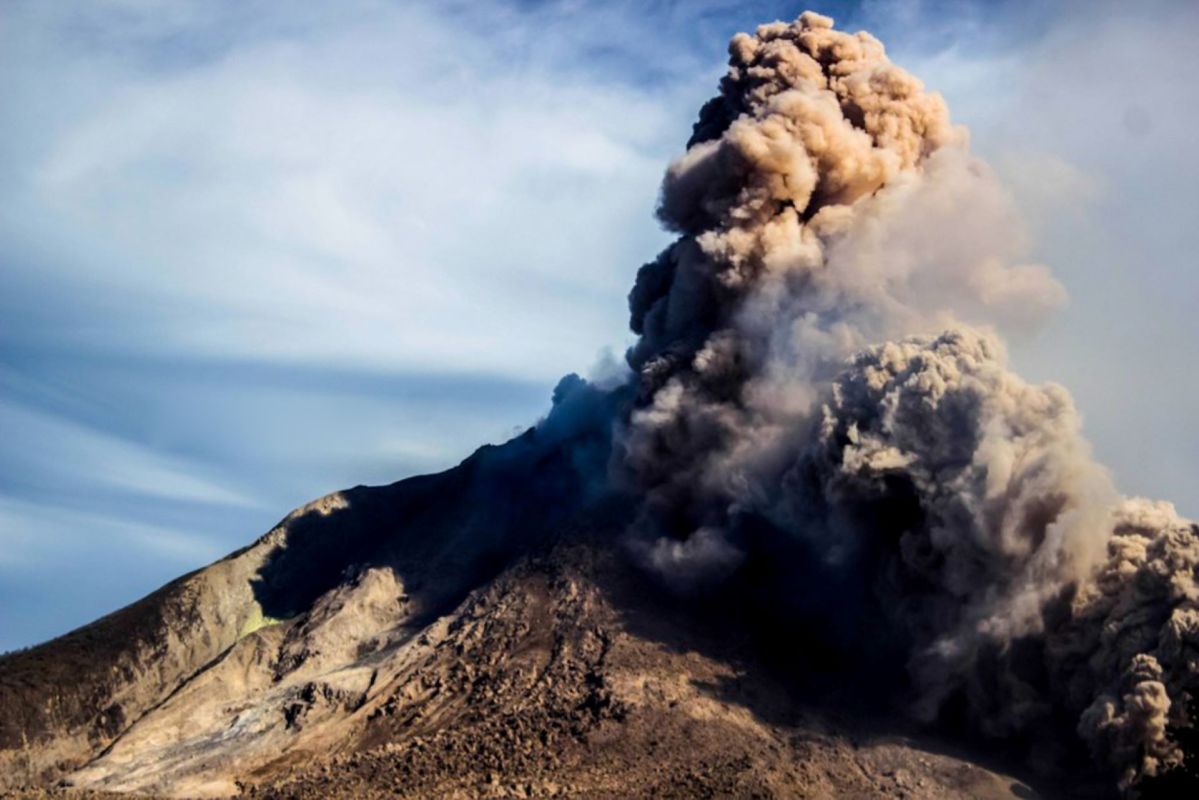Carbon dioxide from massive volcanic eruptions is thought to have been the culprit of many of Earth's mass extinctions — but new research has found that humans are outpacing these catastrophic natural events.
What happened?
Scientists know of five catastrophic mass extinctions throughout Earth's history, according to Our World in Data. Some of these wiped out 90% of all species, per the news outlet Haaretz and researchers.
Historically, mass extinctions were reportedly caused by massive, rapid carbon dioxide pollution from supervolcanic eruptions. The sudden release of this planet-warming gas likely pushed the global environment past its tipping point as it acidified oceans and lifted temperatures.
Researchers at Curtin University's School of Earth and Planetary Sciences in Western Australia recently studied some of these pre-historic volcanic eruptions to understand their link to massive extinction events better. In particular, they looked at the Kerguelen eruptions that started about 130 million years ago — eruptions that did not lead to any mass extinction.
The most alarming finding? The study's researchers announced that humans are producing carbon 200 times faster than the rate of Earth's historic super-eruptions that caused the most severe extinctions.
Why is this concerning?
Already, scientists believe we are in the midst of the sixth mass extinction. Atmospheric levels of carbon dioxide are at the highest ever recorded, and humanity is approaching an average global increase of 3.6 degrees Fahrenheit since the late 19th century.
Besides natural events like volcanic eruptions, carbon dioxide pollution primarily comes from burning organic materials like coal, gas, oil, wood, and garbage. If we don't slow down, life on Earth could effectively disappear.
What can I do to help with carbon pollution?
"Archives from the past clearly show that slowing down carbon dioxide emissions is crucial to mitigate Earth's climate change and avoid potentially disastrous consequences that are projected based on current human-induced emissions," said lead researcher Dr. Qiang Jiang.
But it will take all hands on deck to steer the ship toward a healthier future for life on Earth.
The Natural Resources Defense Council (NRDC) suggests ordinary citizens implement small or larger changes to do their part. These include powering your home with renewable energy like solar, weatherizing your space to reduce heating and cooling needs, investing in energy-efficient appliances that don the Energy Star label, recycling old household items instead of throwing them away, reducing water usage, buying LED light bulbs, cutting food waste, and driving a fuel-efficient or electric vehicle.
Even a seemingly small move, like keeping your car's tires properly inflated, could reduce your carbon pollution by slashing gas usage. If everyone in the U.S. kept their tires inflated, it could save 1.2 billion gallons of polluting gas each year, per the NRDC.
The organization also encouraged citizens to put pressure on those in charge. One way to do this is by calling your representative or writing them a letter.
"The main reason elected officials do anything difficult is because their constituents make them," said clean energy advocate Aliya Haq.
This method will likely give more bang for your buck when it comes to making a difference, too.
"I know there is a lot of emphasis on individual action but most of the climate-altering pollution and fossil fuel burning is the responsibility of a small number of parties," Katie Collins, curator of benthic mollusks at London's Natural History Museum, said. "It would be much more effective for individuals to put pressure on policymakers and businesses to reduce emissions and target companies that are major emitters."
Join our free newsletter for cool news and actionable info that makes it easy to help yourself while helping the planet.









